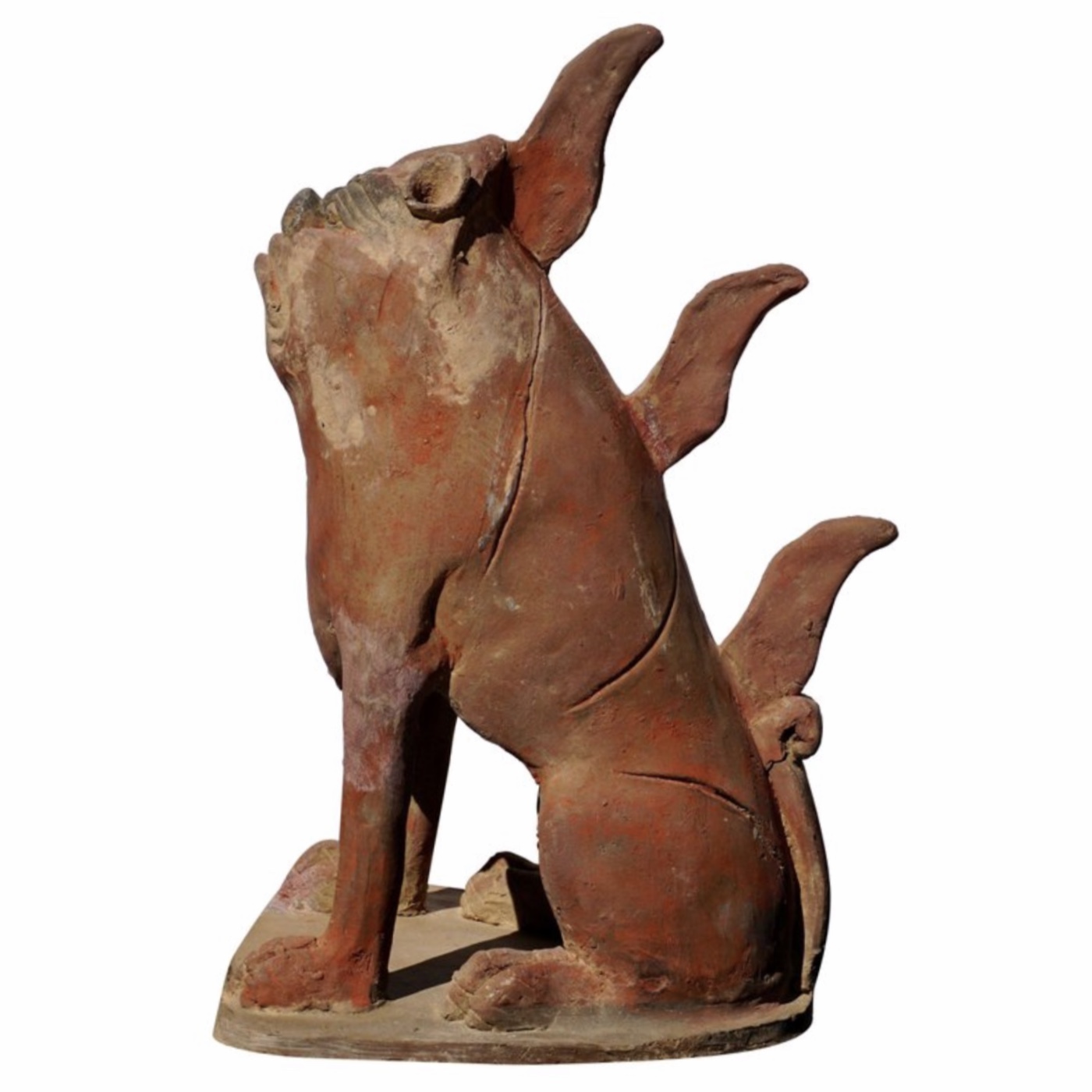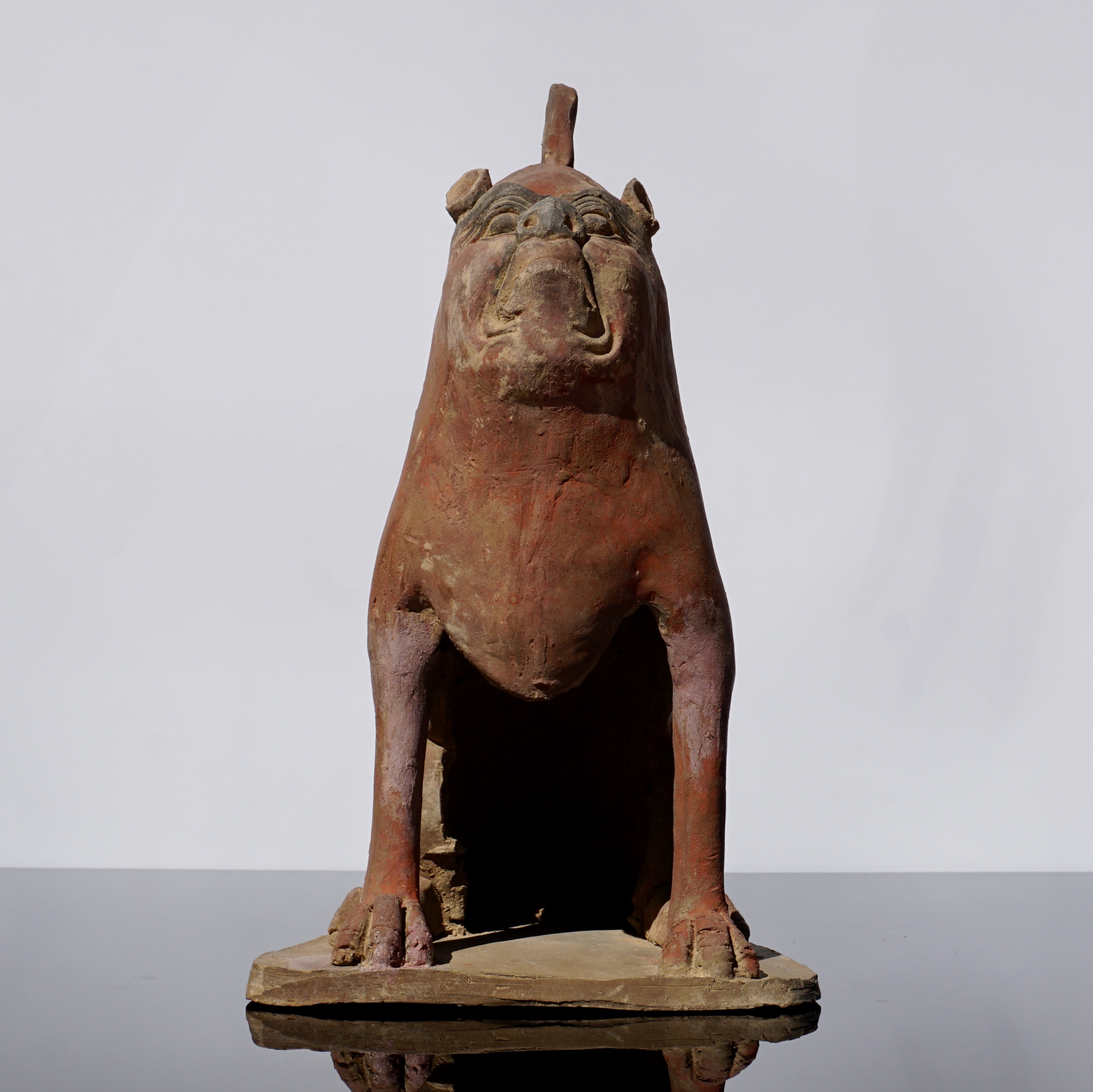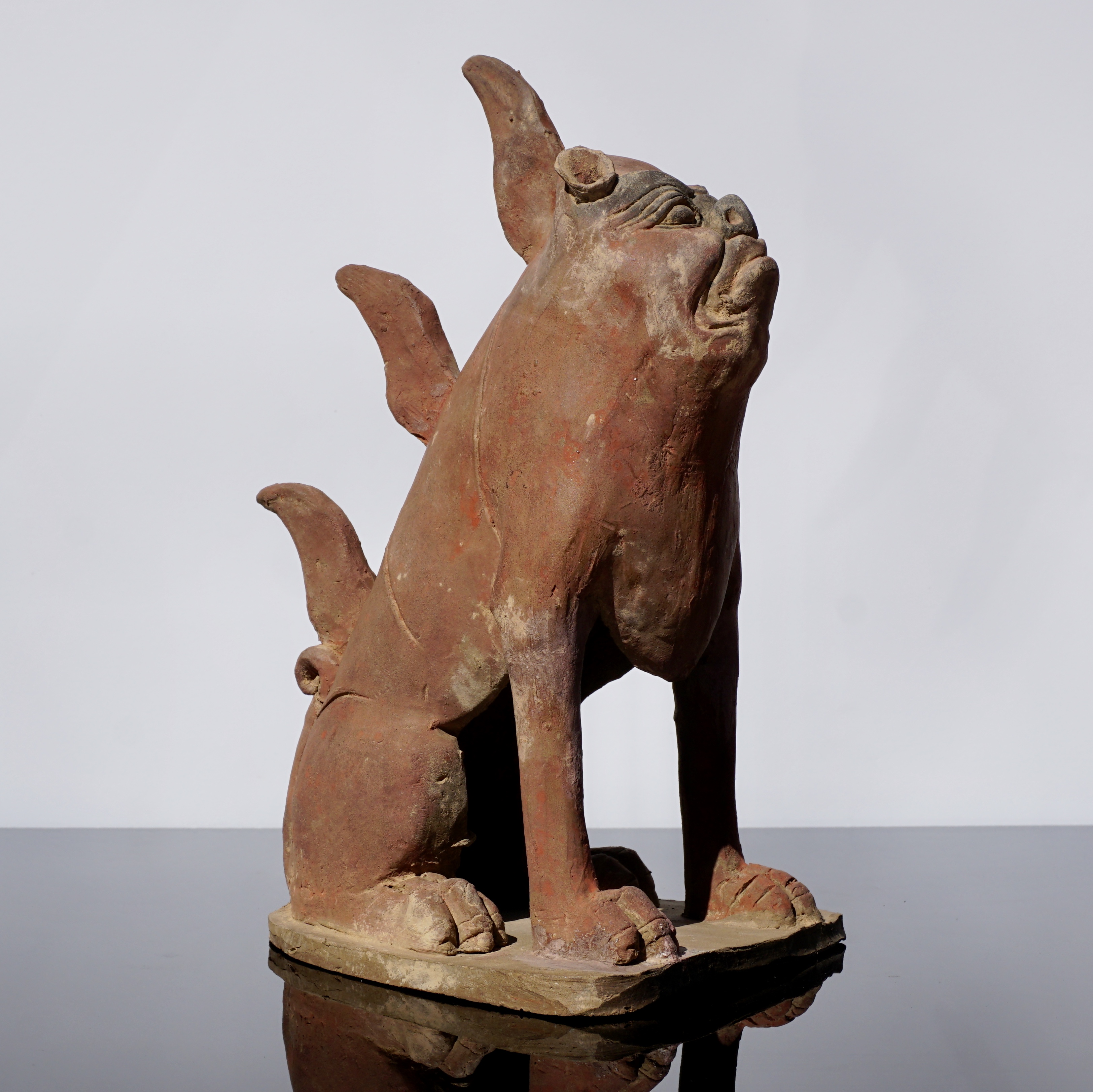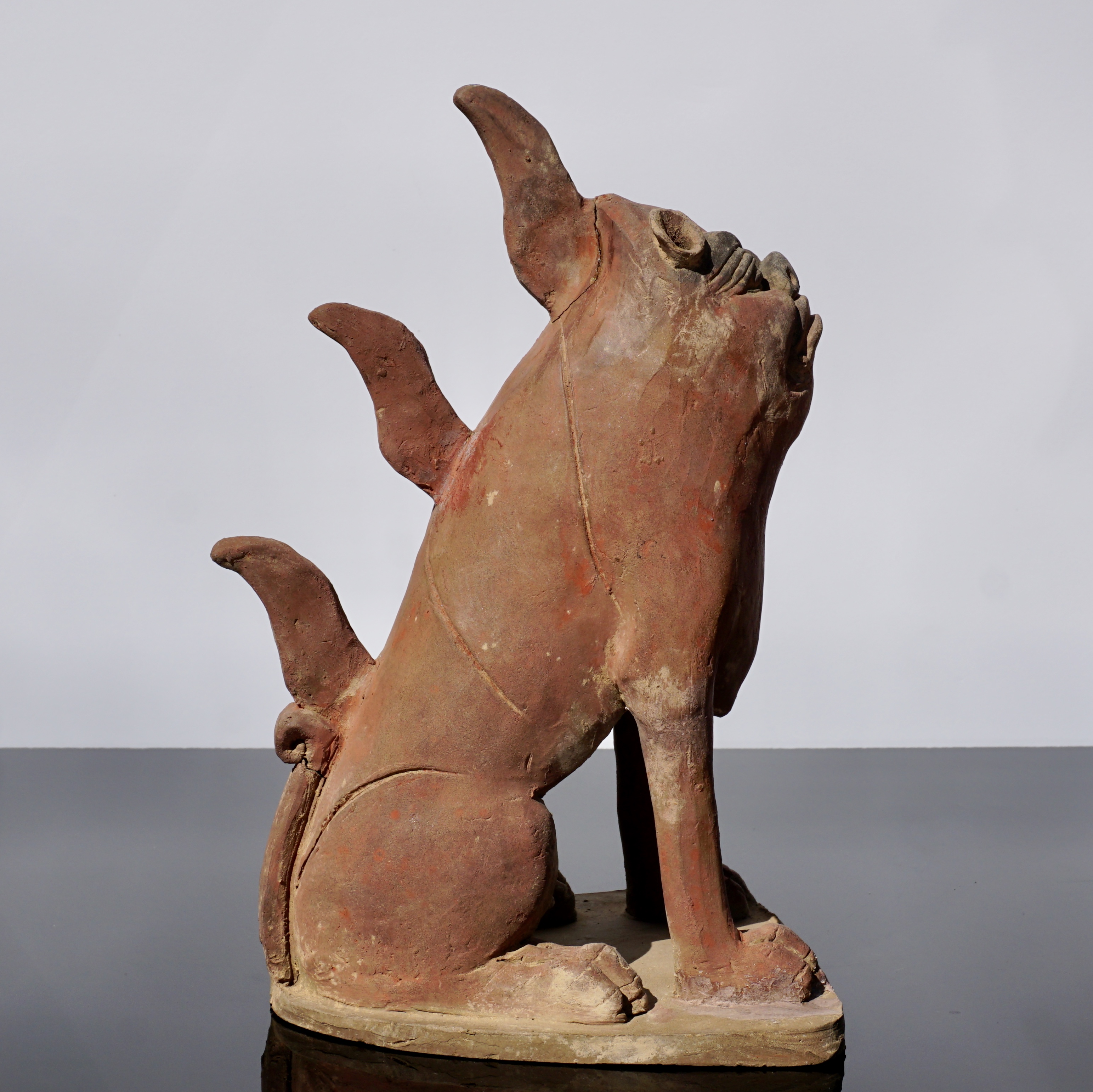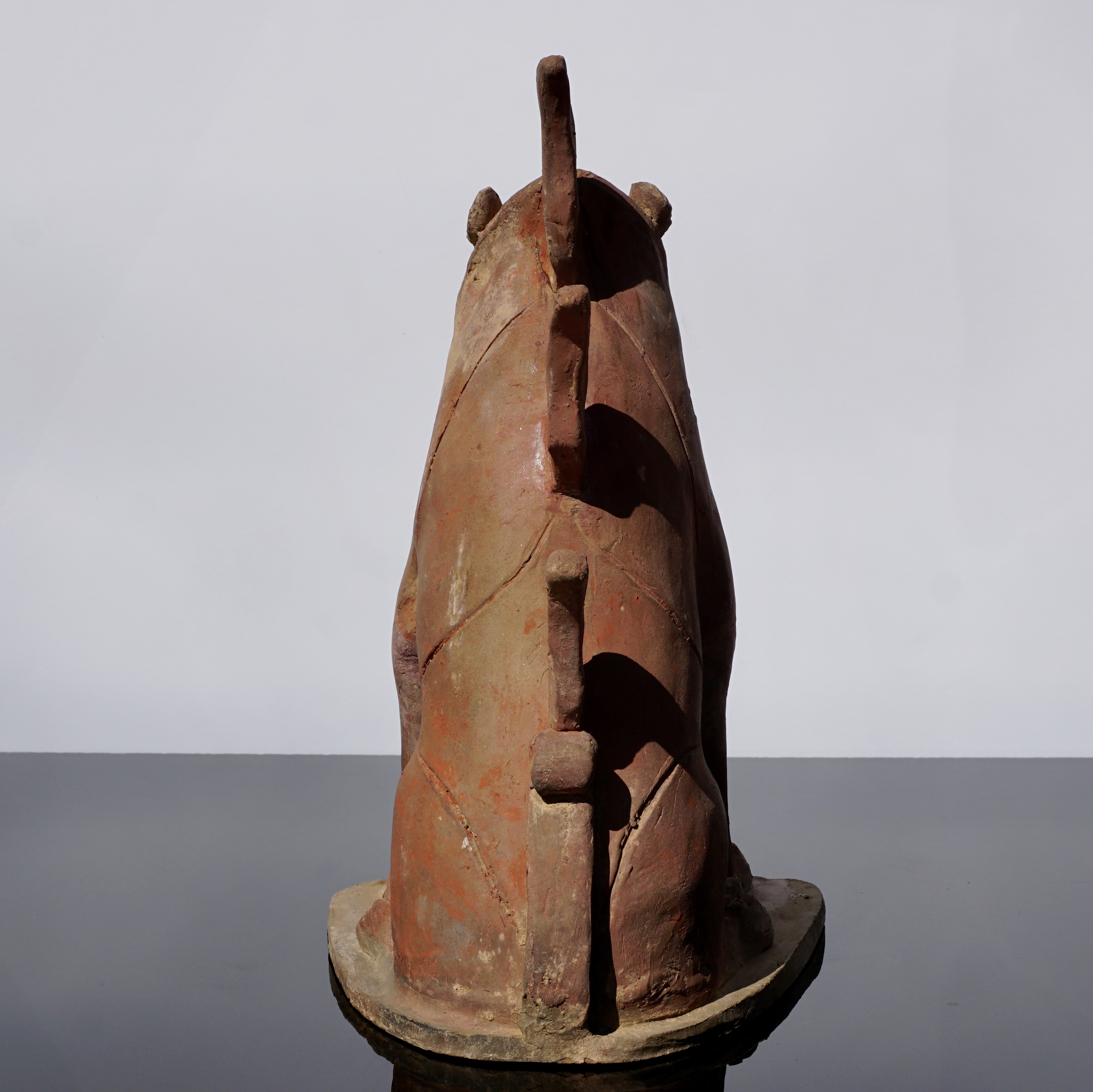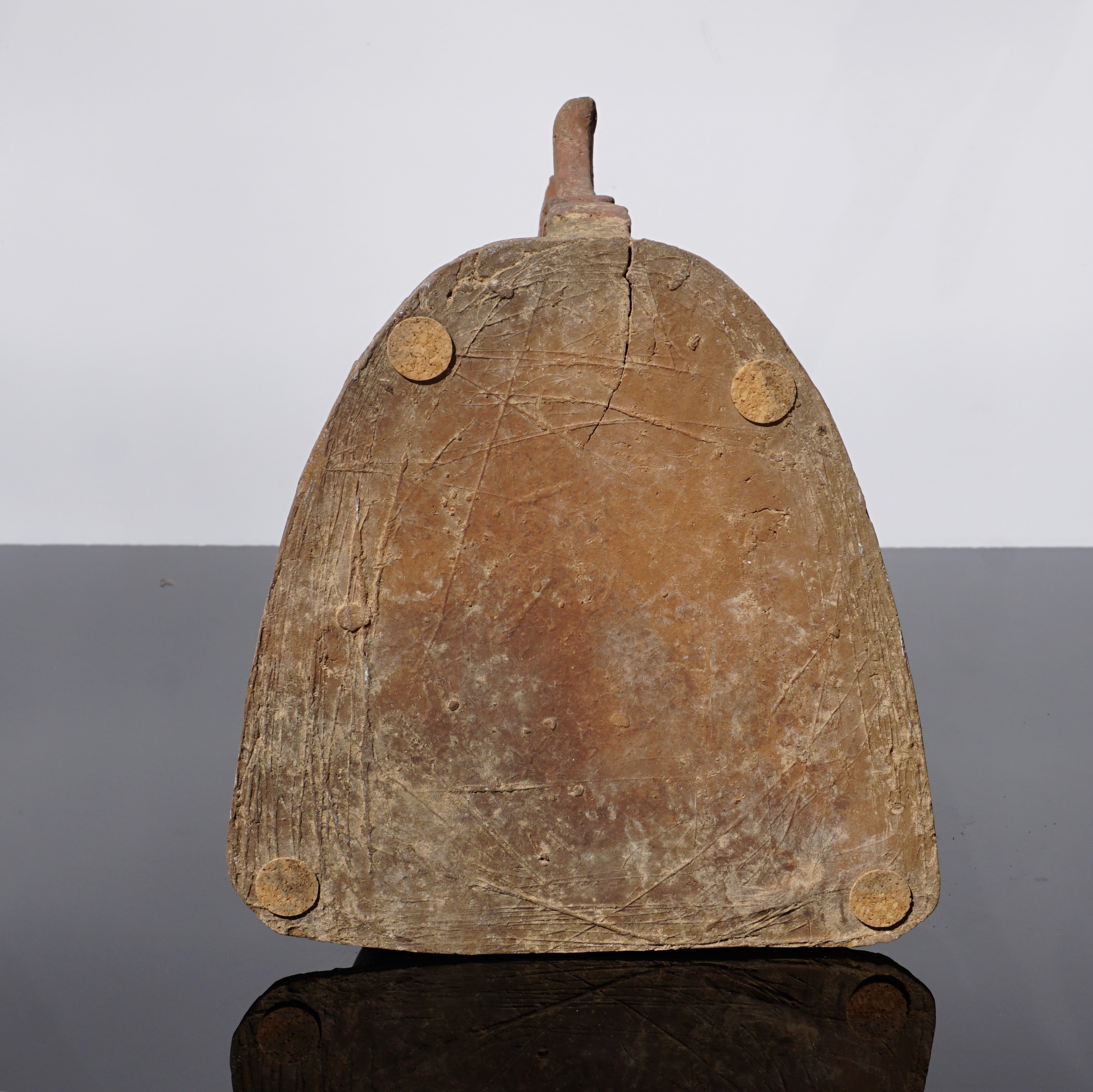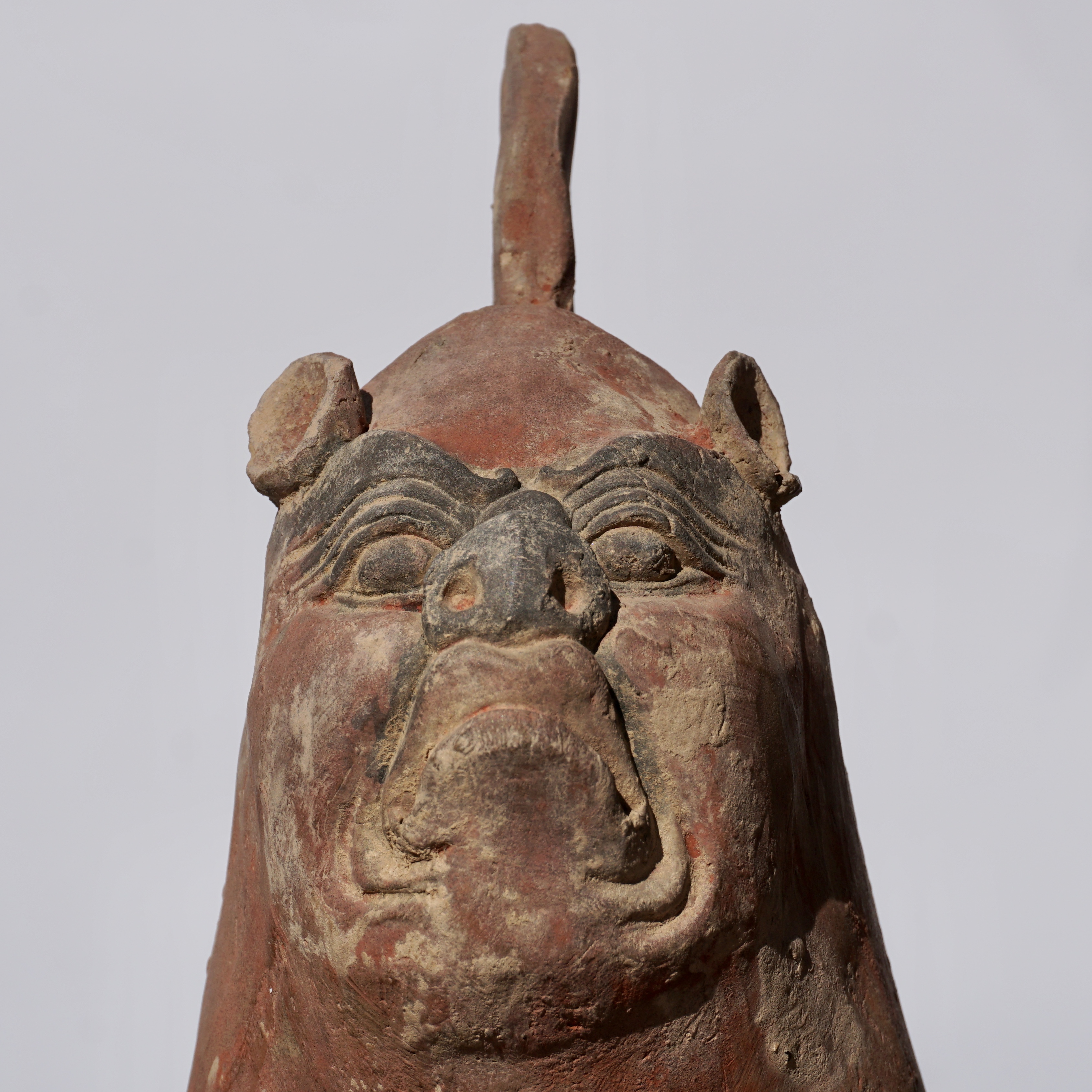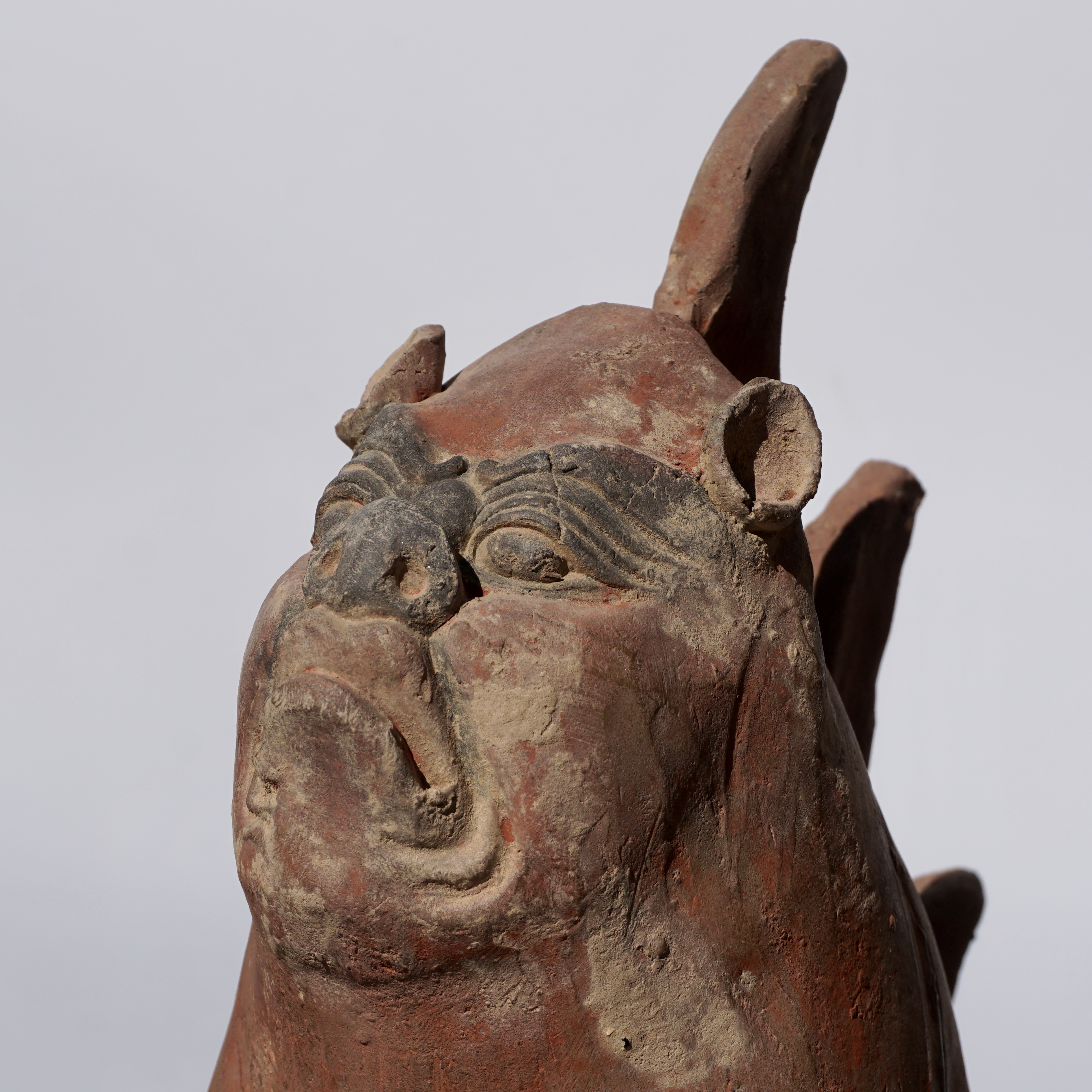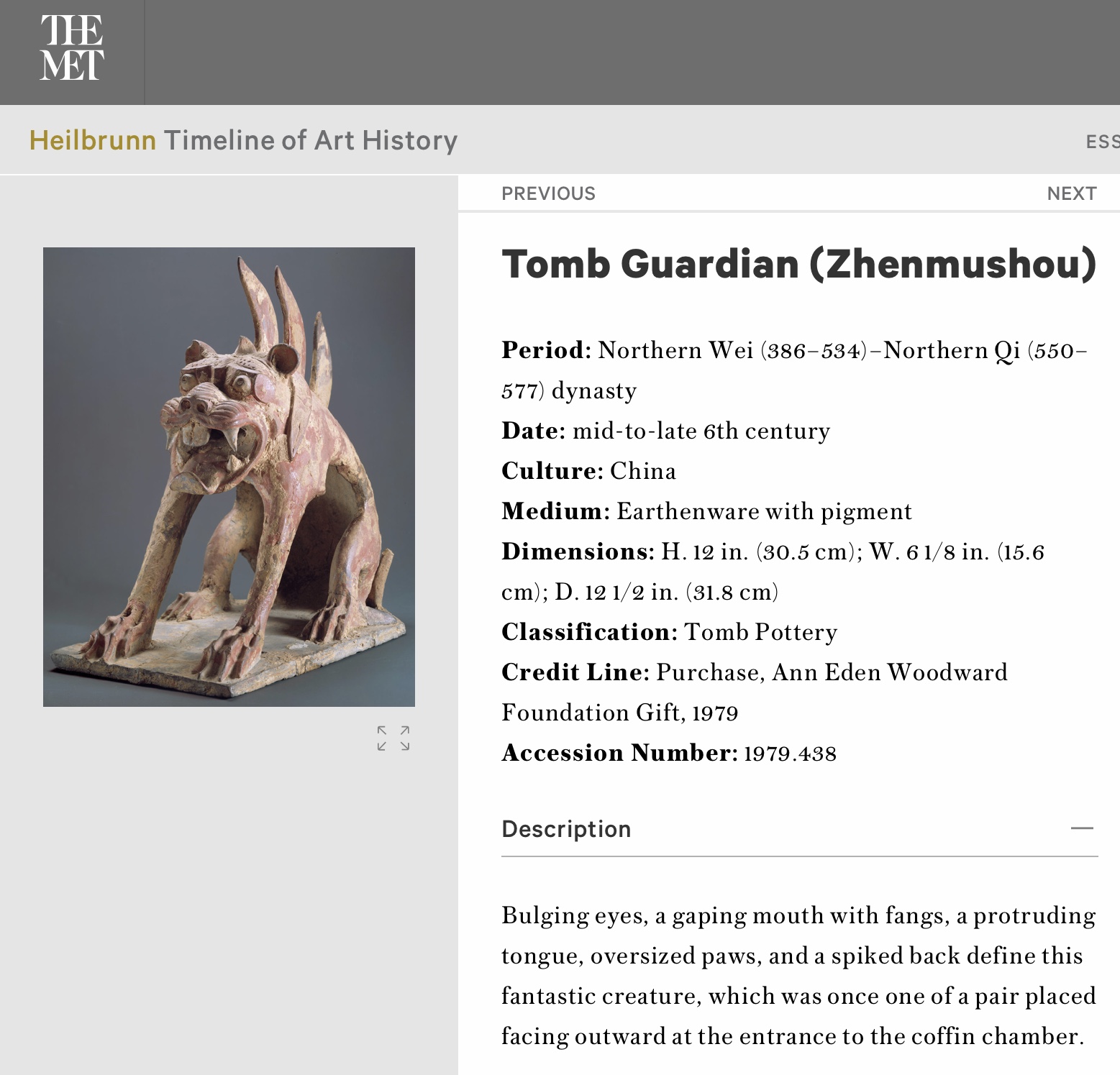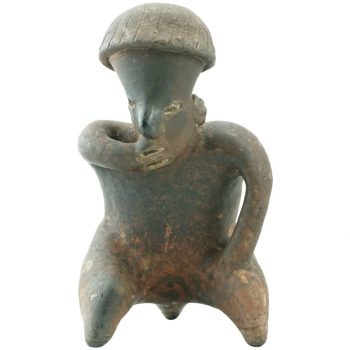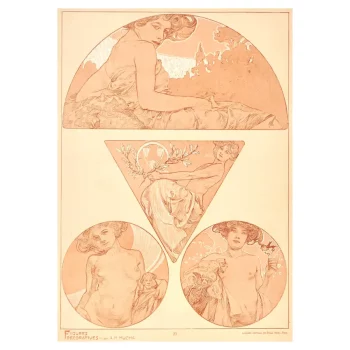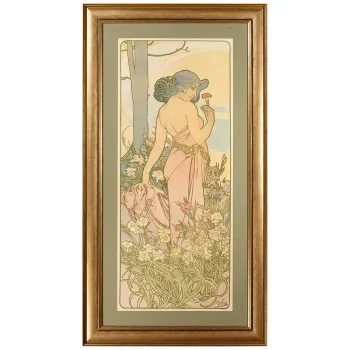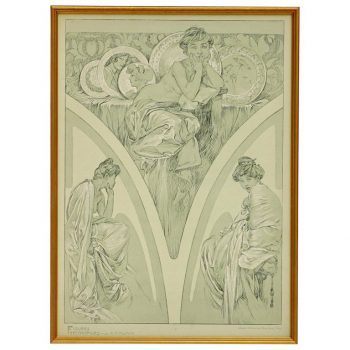Description
Chinese terracotta Mingqi Zhenmushou guardian sculpture.
Late Han/ Jin Dynasty (100 to 420 CE)
A powerful hybrid mythical chimeric composition, with human and animal features, canine/ lion body, with three spikes along back, curled tail. Flared nostrils, round ears, full pouty and human lips with expressive eyes, a canine body, legs and paws with dragon like crests along back. Seated on slab base. Later known as Qilin. Feel free to make a reasonable offer; Authenticity guaranteed! Restoration to uppermost crest.
Measures: Height 11 inches. (27.5 cm) Width 6.5 inches Depth 6.6 inches
Guaranteed authenticity: Artemis Gallery certificate of authenticity included with this Guardian Spirit. The only US company that does TL testing. This item is not TL tested. We absolutely guarantee all out Chinese artifacts unconditionally for age and authenticity. Please also consider our vast collection of Han, Jin, Tang, Ming and Qing Dynasty
Mingqi (Chinese: míngqì), sometimes referred to as “spirit objects” or “vessels for ghosts”, are Chinese burial goods. They included daily utensils, musical instruments, weapons, armor, and intimate objects such as the deceased’s CAP, can and bamboo mat. Mingqi also could include figurines, spiritual representations rather than real people, of soldiers, servants, musicians, polo riders, houses, and horses. Extensive use of mingqi during certain periods may either have been an attempt to preserve the image of ritual propriety by cutting costs, or it may have a new IDEA separating the realm of the dead from that of the living.
Mingqi served to provide the deceased with necessities and comforts in the afterlife. The deceased person’s po was said to remain in the realm of the tomb while the hun ascended to heaven. To appease and make worthwhile the deceased’s po, mingqi claimed relevant and liked by the deceased were placed in his tomb. Upon placing mingqi in the tomb, humans, according to the Confucian ideal, were harmonizing the cosmos by striking a balance for the comfort of the deceased who is also comforted in heaven.

